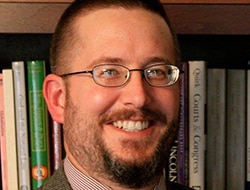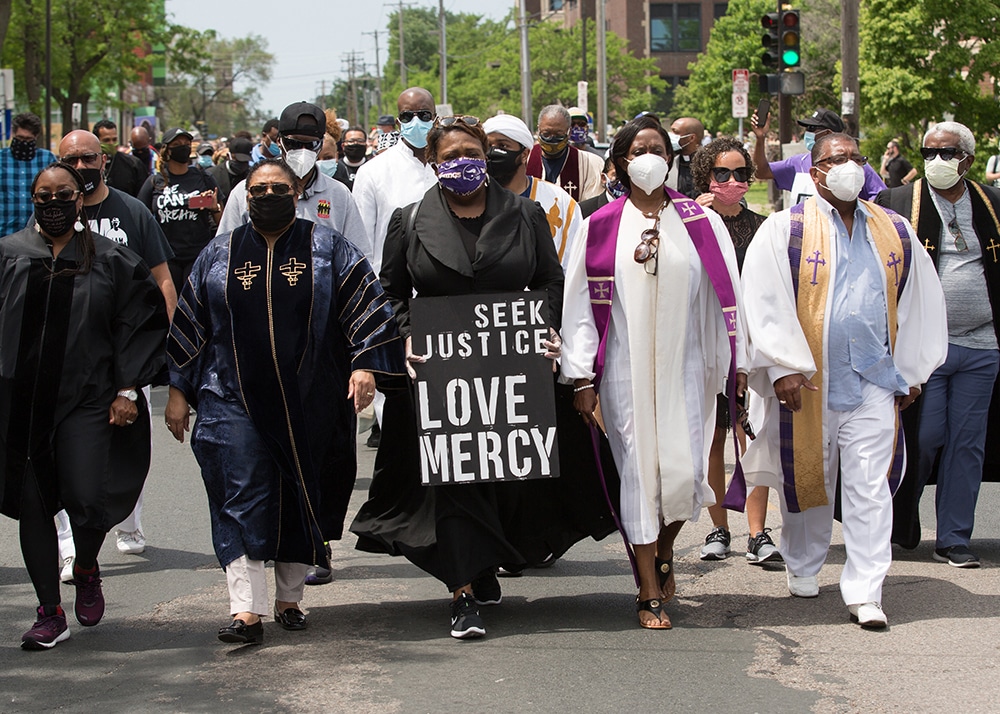 “From the Chapel” is a series of short, daily reflections on life and faith in a time of uncertainty. As people across the world cope with the effects of the coronavirus — including the social isolation necessary to combat its spread — these reflections remind us of the hope that lies at the heart of the Gospel.
“From the Chapel” is a series of short, daily reflections on life and faith in a time of uncertainty. As people across the world cope with the effects of the coronavirus — including the social isolation necessary to combat its spread — these reflections remind us of the hope that lies at the heart of the Gospel.
Can you love every person on earth as fully as you can love your spouse? Can you love other people’s children as much as you love your own?
Your first reaction to those questions, how you answer them before you think them through, may depend a lot on the influences you had during the years when your conscience was being formed. As does, for that matter, your reaction to the phrase “when your conscience was being formed,” rather than, say, “when you were developing your ethical principles.”
Just as we Catholics speak of forming our consciences, we also recognize certain fundamental truths about human relations. We are called to love God above all else, and our neighbor as ourself, but our ability to love others in any way that isn’t abstract depends on having an actual relationship with them.
But wait — what kind of relationship did the Good Samaritan have with the man attacked by robbers? Surely the priest and the Levite, as fellow Jews, were closer to the man than a Samaritan, the enemy of the Jews? On some level, yes. They shared a common ethnicity and a common religion. But while they crossed to the other side of the road and continued on their way, the Samaritan stopped and showed mercy. He was, as Christ points out, neighbor to the man. But to be neighbor to him, he, like the priest and the Levite, had to be there.
All three had the same opportunity, because all three encountered the man alongside the road. But only the Samaritan entered into relationship with him.
The reality of that relationship — based entirely on proximity and the recognition of their shared humanity — often gets lost in the recounting of the parable, especially when it’s taught as an illustration of an ethical principle rather than as a way to form our conscience. “Am I my brother’s keeper?” Cain asked, after he slew Abel. Yes: In a way that I could never be responsible for the life of someone halfway around the globe, whom I have never met, I am responsible for those closest to me.
We are called as Christians to love our fellow man. The priest and the Levite were too. And no doubt they did. But loving man in the abstract is a lot easier than loving this man right here, right now.
But right here and right now is where real love shows itself. It’s the only time and the only place in which it is possible to be neighbor to another. Our actions in this time and this place, not our warm feelings for mankind in the abstract, are that on which we will be judged. “Lord, when did we see you hungry or thirsty or a stranger or naked or ill or in prison, and not minister to your needs?” (Matthew 25:44).
This reality that should form our conscience as Christians also lies at the heart of the principle of subsidiarity that I discussed yesterday. Loving everyone in the abstract is a lot like trying to solve problems that, when viewed at a national or global level, are so large that they can have no solution.
We may not want to love our neighbor, but we can. We may want the president or Congress to solve for us the problems of poverty or race relations or abortion or crime, but they have less ability to do so in our hometown than we do. A sheriff in Flint, Michigan, can lay down his helmet and baton and say to those standing before him, “You tell us what you need.” And he can walk with them. He can defuse a situation through actual love of neighbor in a way that no governor in a statehouse or president in the White House is capable of doing, because how to do so in his position is a problem without a solution.
Scott P. Richert is publisher for OSV.



